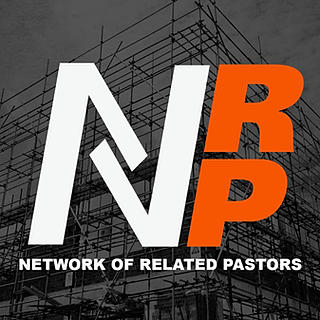Leadership in Context Episode 86 Show Notes
- NRP
- May 5, 2020
- 4 min read

Leadership Lessons from Judges, pt2
Leadership in Context with Keith Tucci
Episode 086
We are spending a few episodes looking at leadership lessons that we can learn from the book of Judges--a book that spans about 400 years.
In the beginning of Judges, there is no successor to Joshua. The Israelites asked the Lord what they should do…
Judges 1:2
The Lord said, “Judah shall go up; behold, I have given the land into his hand.”
The word Judah means praised, to praise, or praising. Praise is the acknowledgement of God. Praising is one of the greatest character demonstrations of a leader. Everyone wants a positive leader. No one likes a negative or critical leader.
Leaders must be praisers. Praisers are God-reflectors. Praisers reflect what God is doing. That doesn’t mean they can’t be analytical and study data. But the first thing a leader has to do is reflect the heart, character, majesty, and person of God.
When you are a praiser, you see the possibilities. When you are not a praiser, you don’t see the possibilities because you don’t see God.
The number one rule in leadership is to acknowledge God.
The greatest culture you can build is to be a praising people. Out of that comes everything!
As a leader, if you aren’t a praiser, you can lead out of your giftings, talents, and anointing, which is good, but it ends up being about what YOU are going to do/able to do. When you are a praiser, it is about what GOD is going to do and how you should respond to that.
Judges 2:4-5
When the angel of the Lord spoke these words to all the sons of Israel, the people lifted up their voices and wept. So they named that place Bochim; and there they sacrificed to the Lord.
Here’s the situation: The Israelites were in trouble with God. God had told them that He would deal with them, so they went to the Valley of Bochim. Bochim means weeping.
You can be worshipping or you can be weeping.
Leaders need to be worshipping. Leaders need to be praisers. Leaders need to demonstrate the presence of God by not just being internally optimistic, but by being a God-acknowledger.
Pattern of Discipleship
1. I do it, and you watch: A leader understands that he is being watched. A leader understands that his model is more important than his message, because his model is the seed bed where the seed of the message falls.
2. I do it, and you help: Teach how to do something. Teach how to praise the Lord when in the middle of a hard situation and teach how to praise the Lord when everything is good.
3. You do it, and I help.
4. You do it, and I watch.
5. You do it, and another watches.
These five steps are critical to keep you out of the Valley of Bochim.
God wants His leaders to be a people who are not just able to walk in the presence of God, but are able to invite people into the presence of God. God inhabits the praises of His people. In good times and bad times, what comes out of us? Is it the spontaneous eruption of praise?
Worship is the first obligation, responsibility, opportunity, and privilege of the Church. The first thing we are, is a worshipping community. When Paul and Silas were in jail, they didn’t have instruments or a choir or a CD with instrumental music, and yet they praised God. That’s how we should be as leaders!
We should be known for celebrating God. Not just giving Him thanks for what He is doing, but Who He is. And then, of course, for what He is doing. (You can’t really separate them completely.)
God is God, regardless of our circumstances. That needs to be in us. That’s why we send Judah (worship) first. Judah was the tribe that was at the head of the marching order that God always sent out first.
There should be a celebratory manifestation in our worship that acknowledges God. There should be a celebratory manifestation in our leadership that celebrates Who God is. There should be a celebratory manifestation in our life that produces a culture so that leadership is not just driven by tactics, but an inward velocity that acknowledges and reflects God.
Keep the main thing the main thing. The first thing we see in Judges is the sending of Judah first. Throughout the book of Judges, the Israelites keep getting in trouble because they stop worshipping God and start worshipping other gods.
They asked God what to do, and He replied with, “Send Judah first and the battle shall be won.” God hasn’t changed His mind. Be a leader who is a praiser.
Join us next week as Keith Tucci continues to put leadership truth in the context of the local church. And as always, please like, share, rate/review, and invite others to listen. See you next week!







Comments